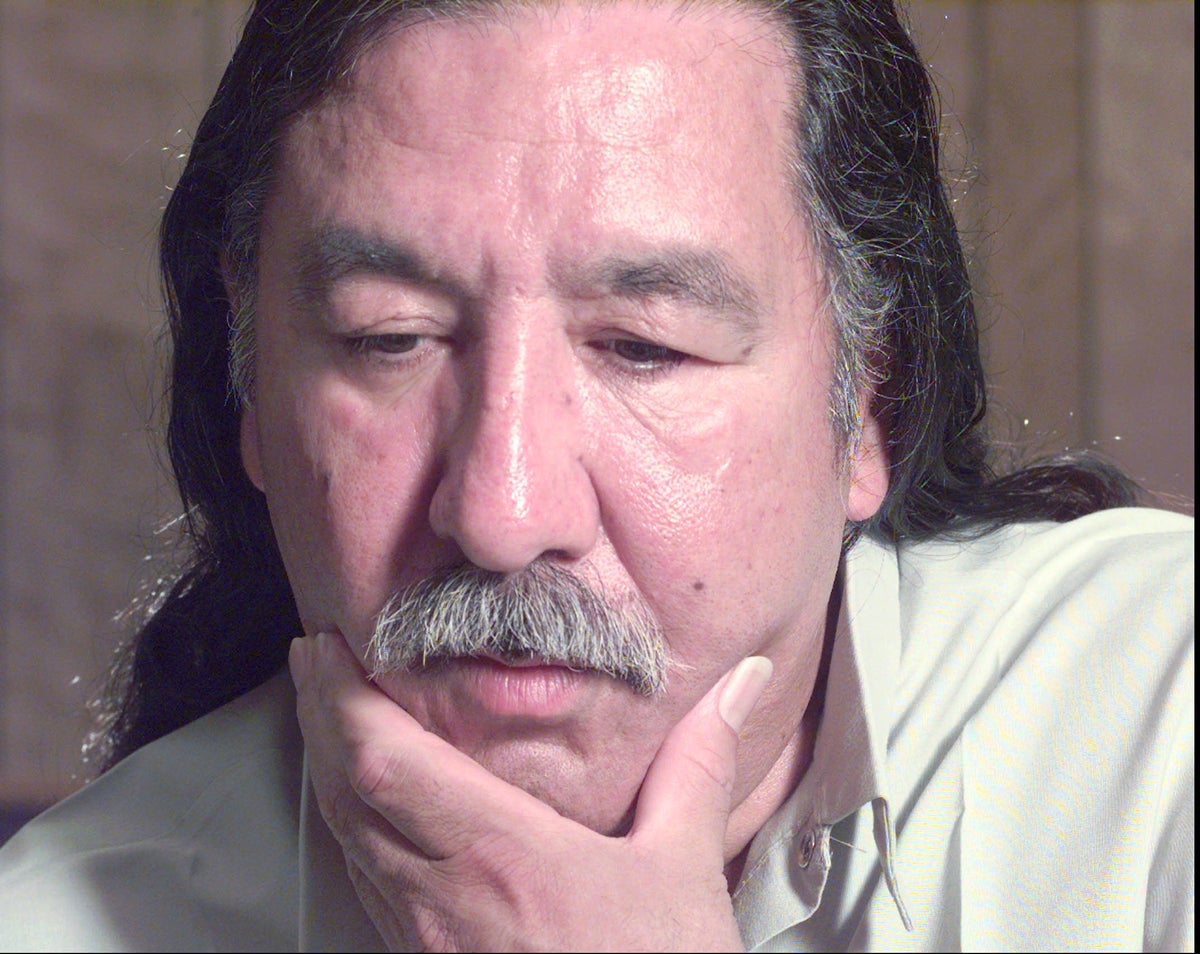
Just moments before leaving office, President Joe Biden commuted the life sentence of Indigenous activist Leonard Peltier, who was convicted in the 1975 killings of two FBI agents.
Peltier was denied parole as recently as July and wasn’t eligible for parole again until 2026. He was serving life in prison for the deaths of the agents during a standoff on the Pine Ridge Indian Reservation in South Dakota. He will transition to home confinement, Biden said in a statement.
Biden issued a record number of individual pardons and commutations. He announced on Friday that he was commuting the sentences of almost 2,500 people convicted of nonviolent drug offenses. He also gave a broad pardon for his son Hunter, who was prosecuted for gun and tax crimes.
On Monday, Biden also pardoned Gerald Lundergan, a Democratic politician from Kentucky who served in the state House of Representatives. He was convicted of making illegal campaign contributions to his daughter’s failed U.S. Senate campaign. Ernest William Cromartie, a former Columbia, South Carolina, city council member who was convicted of tax evasion, also was pardoned.
Bureau of Prisons spokesperson Emery Nelson said after Biden’s commutation that Peltier remained incarcerated Monday at USP Coleman, a high-security prison in Florida.
Outgoing Interior Secretary Deb Haaland said she is “beyond words” about Peltier's last-minute commutation.
Haaland, the first Native American Cabinet member, posted on X that it ″signifies a measure of justice that has long evaded so many Native Americans for so many decades. I am grateful that Leonard can now go home to his family. I applaud President Biden for this action and understanding what this means to Indian Country.”
The fight for Peltier’s freedom is entangled with the Indigenous rights movements. Nearly half a century later, his name remains a rallying cry.
An enrolled member of the Turtle Mountain Band of Chippewa in North Dakota, Peltier was active in the American Indian Movement, which began in the 1960s as a local organization in Minneapolis that grappled with issues of police brutality and discrimination against Native Americans. It quickly became a national force.
The movement grabbed headlines in 1973 when it took over the village of Wounded Knee on Pine Ridge — the Oglala Lakota Nation's reservation — leading to a 71-day standoff with federal agents. Tensions between the movement and the government remained high for years.
On June 26, 1975, agents went to Pine Ridge to serve arrest warrants amid battles over Native treaty rights and self-determination.
After being injured in a shootout, agents Jack Coler and Ronald Williams were shot in the head at close range, the FBI said. American Indian Movement member Joseph Stuntz was also killed in the shootout.
Two other movement members and Peltier's co-defendants, Robert Robideau and Dino Butler, were acquitted of killing Coler and Williams.
After fleeing to Canada and being extradited to the United States, Peltier was convicted of two counts of first-degree murder and was sentenced in 1977 to life in prison, despite defense claims that evidence against him had been falsified.
Biden’s action Monday followed decades of lobbying and protests on Peltier’s behalf by Native American leaders, human rights activists, liberal lawmakers and celebrities who maintain he was wrongfully convicted. Amnesty International has long considered Peltier a political prisoner. Advocates for his release have included Archbishop Desmond Tutu, civil rights icon Coretta Scott King, actor and director Robert Redford and musicians Pete Seeger, Harry Belafonte and Jackson Browne.
Law enforcement officers, former FBI agents, their families and prosecutors have strongly opposed a pardon or any reduction in Peltier’s sentence for just as long. Presidents Bill Clinton and Barack Obama rejected Peltier’s clemency requests, and he was denied parole in 1993, 2009 and 2024.
Shortly before Biden commuted Peltier’s sentence, the No Parole Peltier Association led by former FBI agents posted a statement celebrating the fact he hadn’t been pardoned. The group didn’t respond to a message seeking comment after Peltier’s sentence was commuted.
Peltier’s supporters pushed Biden to act because Peltier is 80 and has health problems, including diabetes, high blood pressure, heart trouble and an aortic aneurysm discovered in 2016, according to his lawyers. His backers worried that he would not get another chance at parole or a compassionate release before dying behind bars.
Peltier's attorney, Kevin Sharp called Monday an “incredible day.”
Sharp said the commutation means Peltier can return to the Turtle Mountain Band of Chippewa reservation in North Dakota, and that there is no evidence to suggest Peltier was guilty.
“It recognizes the injustice of what happened in Mr. Peltier’s case," Sharp, a former federal judge, said. “And it sends a signal to Native Americans in Indian country that their concerns -- what has happened to them and their treatment -- isn’t going to be ignored. It’s a step toward reconciliation and healing.”
___
Hanna reported from Topeka, Kansas and Karnowski reported from Minneapolis. Associated Press reporters Hannah Fingerhut in Des Moines, Iowa; Josh Funk in Omaha, Nebraska; Heather Hollingsworth in Mission, Kansas; and Jack Dura, in Bismarck, North Dakota, contributed.







